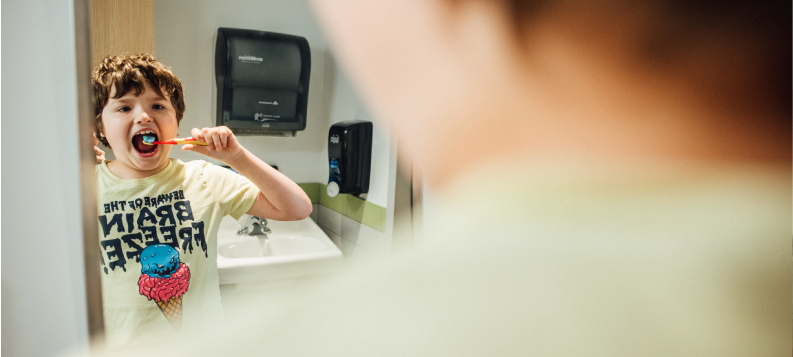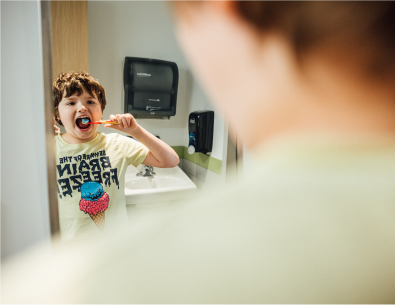

Occupational
Therapy
Occupational Therapists work hand in hand with classroom teachers, speech and language pathologists and adaptive physical education teachers to enhance the rate of skill acquisition and growth.
Occupational Therapists at the school focus on the use of purposeful activities that incorporate fine motor and gross motor skills, sensorimotor and sensory processing skills, visual perceptual and cognitive skills. These developmental domains are incorporated into: Sensory processing / self-regulation, activities of daily living (ADLs) and self-care (feeding, dressing, grooming, personal hygiene), instrumental activities of daily living (IADLs), safety awareness, assistive technology, health and wellness, leisure, self-determination, pre-vocational, vocational skills.
Students at MCC receive individualized sessions, as well as transdisciplinary group instruction and lunch/leisure time consultation where appropriate. Occupational Therapy intervention also emphasizes increased time spent in the community, and prevocational/ vocational training to target skills in their natural contexts. Interventions differ based on division and may include increased use of technology equipment such as virtual reality.
In line with the MCC philosophy, Occupational Therapists collaborate closely with parents/caregivers through constant communication, parent education via in-person/ hands-on training and different workshops.


Transdisciplinary Community-Based Instruction Group
Planned and run collaboratively by all 3 providers (SLP, OT, ABA)
Targets different skills needed for community participation included but not limited to shopping, restaurant, safety skills, leisure skills, emergency preparedness, public transportation, job exploration, and vocational skills
Units are targeted in 4- to 6-week cycles
Partnerships with a variety of local businesses and first responders (e.g., FDNY, NYPD)
Simulations within the school environment and community outings
Transition Services
Occupational therapists are an integral part of the transition planning team contributing to all necessary assessment aspects, developing the actual plan and participating in student training across different areas of performance (independent living, vocational training, wellness habits and routines).
Co-Treats
MCC acknowledges the importance of integrating related service goals into daily classroom routines to ensure that students have multiple opportunities to practice and generalize targeted skills. One of the weekly speech and language therapy sessions and one occupational therapy session include a co-treatment with the instructor or lead teacher and the related services professional. The co-treatment model allows for continuous opportunities for practice rather than isolated 30-minute sessions, as well as allowing the student to practice these skills in naturally occurring settings and in programmed activities.

